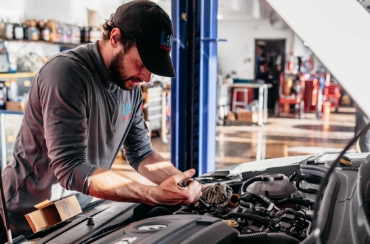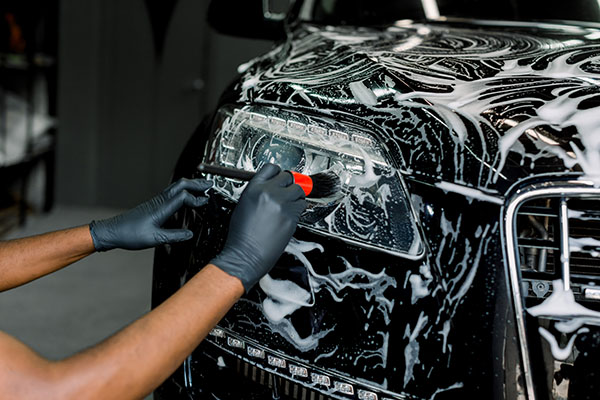
Having a high-mileage auto features its very own collection of obstacles, however with the ideal maintenance, your automobile can proceed running smoothly for much more miles. Normal maintenance is vital to keep your automobile trusted, boost its long life, and minimize the threat of unexpected break downs. Here's an overview to the crucial maintenance tasks that are needed for high-mileage cars and trucks.
- Regular Oil Modifications. Among the most critical maintenance tasks for any kind of vehicle, particularly high-mileage lorries, is normal oil modifications. Oil lubricates the engine's moving parts and aids avoid damage. As your auto ages, the engine's interior components end up being extra susceptible to rubbing and warm, making it important to maintain the oil clean and at the appropriate degree.
For high-mileage cars and trucks, it's typically suggested to change the oil every 3,000 to 5,000 miles, however some newer oils can go longer. Make certain to utilize the recommended oil type for your car, and take into consideration using high-mileage oil created particularly for older engines. These oils have ingredients that help secure leakages and decrease oil burn-off.
- Transmission Liquid and Filter Maintenance. Your transmission is an important part of your cars and truck's performance, and maintaining it healthy comes to be much more crucial as the miles accumulate. Over time, transmission fluid can come to be contaminated with particles, resulting in overheating or perhaps transmission failure. On a regular basis changing the transmission and examining fluid and filter is crucial for high-mileage autos.
A lot of producers advise changing the transmission liquid every 30,000 to 60,000 miles, but this can vary based upon your cars and truck's make and version. It can be a sign that the transmission liquid needs focus. if you notice harsh moving or sliding gears.
- Timing Belt Replacement. The timing belt plays an essential role in keeping your engine's valves and pistons functioning in sync. As a high-mileage cars and truck ages, the timing belt can put on out or even damage, potentially creating severe engine damages. Usually, timing belts need to be changed every 60,000 to 100,000 miles, but it's crucial to inspect your owner's handbook for the manufacturer's details recommendations.
If your vehicle has a timing chain rather of a belt, this part typically calls for less frequent upkeep, but it's still vital to check its condition to avoid costly repair services.
- Brake System Examination. Brake blades and pads wear out in time, specifically in older autos. For high-mileage lorries, regular brake inspections are crucial to make sure that the system is still executing optimally. Worn-out brake pads can cause lowered braking effectiveness, while damaged rotors might require pricey substitutes.
Have your brakes checked at the very least annually, or much more frequently if you observe any kind of uncommon noises, such as squealing or grinding. When necessary and ensure that the brake liquid is at the appropriate level., make sure to change the brake pads.
- Battery Upkeep. A weak or stopping working battery can leave you stranded, so it's necessary to regularly check the condition of your battery, specifically in high-mileage cars. Gradually, the battery's capability to hold a cost diminishes, which can bring about starting problems. Ensure that the battery terminals are tidy and free of corrosion.
If your auto is greater than three years of ages, take into consideration having actually the battery examined routinely. Numerous vehicle shops use cost-free battery testing, which can help you catch any type of possible concerns before they cause issues.

- Coolant System Inspect. The cooling system maintains your engine from overheating by controling the temperature level. In time, coolant can damage down, become polluted, or leak, resulting in engine damage. For high-mileage cars and trucks, it is essential to consistently flush the radiator and check the coolant levels to avoid the engine from overheating.
Flush the coolant system every two years or as recommended by the producer to guarantee the system is functioning effectively. Check for any type of leaks around the radiator, pipes, and water pump.

- Tire Care and Alignment. Tires are among one of the most essential parts for ensuring a secure and comfortable trip. As your vehicle racks up miles, tires can wear erratically, which can influence handling, gas effectiveness, and ride quality. It is essential to on a regular basis inspect your tires for indicators of wear, such as hairless spots or cracks, and turn them every 6,000 to 8,000 miles to promote even use.
Tire placement is also vital, especially in high-mileage cars and trucks. Misaligned tires can cause irregular tire wear and adversely impact fuel performance. If you discover any type of guiding concerns or irregular tire wear., have your cars and truck's alignment inspected.
- Gas System Upkeep. With time, the fuel system in high-mileage cars can end up being blocked with debris and carbon buildup, influencing efficiency and fuel effectiveness. Frequently changing the gas filter and having the gas injectors cleansed will help maintain the engine's effectiveness. You can additionally make use of gas system cleansers to keep the fuel lines clear of accumulation, specifically if you notice lowered velocity or harsh idling.
- Exhaust System Examination. The exhaust system in older autos is a lot more vulnerable to wear and damage. A damaged exhaust can cause poor fuel economic climate, harmful exhausts, and an unpleasant driving experience. Have the exhaust system checked frequently for leakages, rust, or damage, especially around the catalytic converter, muffler, and pipelines.
- Watch on the Suspension System. The suspension system is important for adventure comfort and automobile stability. High-mileage vehicles can experience wear in components such as shocks, struts, and springtimes. If your car really feels bouncy, unpredictable, or has problem soaking up bumps in the roadway, it could be time for a suspension assessment. Changing used suspension components early can prevent additional damage to various other parts of the car.
Verdict. Keeping a high-mileage vehicle calls for normal focus to crucial systems like the engine, transmission, brakes, and cooling down system. By staying on top of routine upkeep and resolving concerns early, you can keep your automobile running smoothly for much more miles. Regular evaluations, liquid modifications, and part substitutes will aid you get one of the most out of your high-mileage car and stay clear of costly repairs down the roadway.
Navigation
Home
Latest Posts
Discover the Vibrant New Mazda CX-50
Published May 29, 25
2 min read
Explore Top Quality Utilized Automobiles at Basil Mitsubishi
Published May 26, 25
1 min read
Experience Excellence at Jake Sweeney Mazda
Published May 23, 25
2 min read